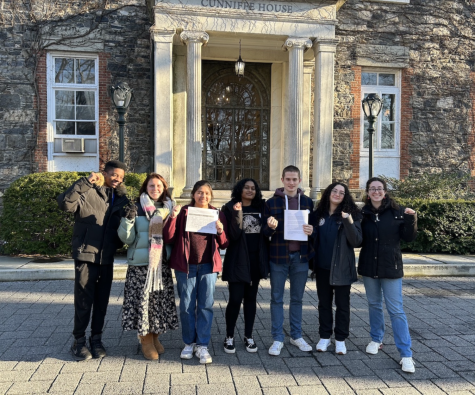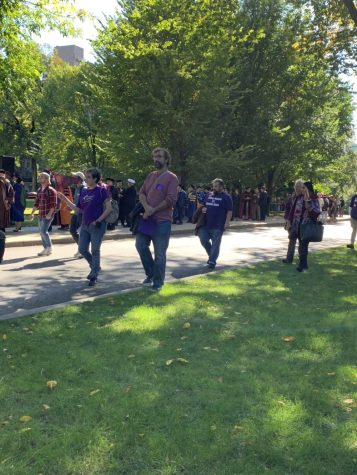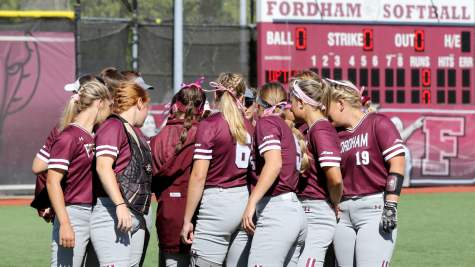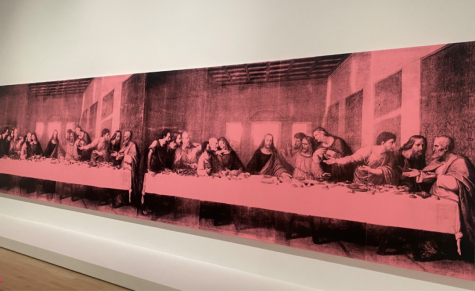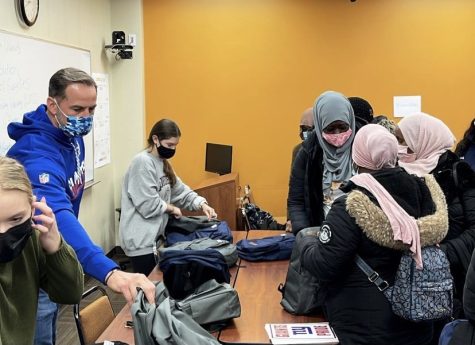Clubs Adjust to Virtual Programming
Since Fordham University switched to online classes on March 9, student clubs and organizations have been unable to host in-person meetings and events. While the Fordham’s Rose Hill United Student Government (USG) has continued with its weekly meetings and annual election, other groups must find ways to proceed with operations. With most clubs requiring physical locations for meetings and person-to-person interaction, students and the Office for Student Involvement (OSI) had to readjust to the coronavirus closures and stay-at-home orders.
“In my opinion, the biggest change is trying to brainstorm innovative ways to bring events that may have been historically in person to online,” said Cody Arcuri, assistant dean for student involvement, in an email to The Fordham Ram. “Our office is currently working with the USG Budget Committee to encourage clubs to still program virtually and we are all here to assist with making the transition to online programming as easy as possible.”
While many clubs are attempting to continue operations with their members, students, such as Matt Schumacher, FCRH ’20, noted how events and meetings cannot be the same.
“I still feel connected, but I’d be lying if I said it feels the same,” said Schumacher in a written statement to the Ram. “Through all of the clubs I’m involved in, (Fordham Experimental Theatre) FET, Mimes and Mummers, (Theatrical Outreach Program) TOP, Vice President’s Student Advisory Council, FCRH Dean’s Council, and others, everyone has had to sacrifice in-person interactions.”
Some clubs found ways to engage with their members over social media and virtual platforms such as Google Hangouts or Zoom. FET, which encompasses four “umbrella groups” — sketch comedy, stand-up comedy, improv and poetry — organized “FET-thon,” which fundraised $3981.69 for St. Barnabas Hospital, from March 30 to April 4, on Instagram. According to Schumacher, it was not only a way to raise money but a way to keep students and alumni entertained. Last week, FET hosted its formal and award ceremony via Zoom.
Mimes and Mummers, another theatrical group at Rose Hill, held its voting for next year’s shows via Zoom, and, instead of putting on “King Lear” as was planned, the cast, production team and director recorded a Zoom table read and posted it on the Mimes’ YouTube page.
Similarly, Fordham University Philippine-American Club (FUPAC) is using the at-home period to expand its virtual platform.
“Making a TikTok account and being more active online is an opportunity for us to continue club work this year without losing everything we planned,” wrote Perry Flores, FCRH ’21 and FUPAC vice president, to the Ram. “I think it makes our members excited and by the looks of the comments it even attracts the attention from people outside the club.”
Ina Patrice Gonzales, FCRH ’21 and FUPAC president, wrote to the Ram in agreement with Flores, stating that members of the third district of Filipino Intercollegiate Networking Dialogue, in addition to FUPAC, have bonded through Instagram and TikTok.
“Many of our members are more receptive when it comes to posting on social media in comparison to sending emails so this has allowed for the large Filipino community to feel more connected during this hard time away from each other,” said Gonzales.
Additionally, FUPAC is hosting GamePigeon tournaments between its members, as well as having held a Zoom “Pictionary” game, planning trivia meetings and sharing what its executive board is doing via Instagram stories.
Other organizations, like St. Rose’s Garden and the Residence Hall Association (RHA), have lost the physical means for their club activities. In addition to students moving out of Fordham’s dormitories due to the closure, no one can access or tend to the St. Rose’s Garden.
“St. Rose’s is encouraging its members to continue the mission by gardening at home, and sharing gardening/composting with us via social media,” wrote Molly Brodowski, FCRH ’20 and St. Rose’s artist in residence. “It’s unfortunate that we aren’t able to access the garden at all — we had big plans for planting vegetables in the beds this semester, and it’s always a joy to take part in the garden’s presence during the spring semester and warmer months. But, we are continuing to share green ideas and tips mainly over instagram, and hope that this will cause more anticipation and activity for the fall semester.”
Currently, St. Rose’s, in collaboration with the Social Innovation Collaboratory Impact Initiative, the USG Sustainability Committee and Students for Environmental Awareness and Justice (SEAJ), is helping promote and celebrate Earth Week. Some of the virtual activities include TED Talk recommendations, plant-based recipes, a Netflix Party and tutorials on different aspects of sustainable lifestyles.
Unlike other clubs, RHA has suspended activity for the rest of the semester aside from social media campaigns and e-board elections.
“RHA hasn’t done any virtual programming and as of right now we don’t have any plans to,” stated Kimona Dussard, FCRH ’20 and RHA executive president, in an email to the Ram. “A lot of this is because our programming primarily functions through the individual resident hall boards and often are difficult to translate to a virtual format. The Executive Board is looking into some social media-based engagement campaigns to release soon though!”
Organizations also experience more issues when trying to plan for the next academic year. RHA held its e-board elections last month, and because of the university’s remote status, proper training cannot take place.
“It is going to be a bit of a transition for them, however, given that no one on the Eboard will have experienced Under The Tent from an Executive Board side,” said Dussard.
Mimes and Mummers faces similar issues with scheduling its stage productions, which involve hiring a professional director from outside of Fordham.
“It has definitely put a lot of pressure on our schedules,” wrote Annika Fagerstrom, FCRH ’21 and Mimes president, to the Ram. “From hiring a director to the final show is a 12+ week process for us, so the board is already working on next semester. It’s very difficult to put together a full schedule for the upcoming two semesters with so many unknowns. I think I’ve had more Zoom board meetings over the last weeks than we ever had in person.”
Timing meetings has been a conflict clubs face. While FUPAC’s elections went “smoothly,” according to Gonzales, through the use of Google Hangouts and Google Forms, the club still needed to accommodate and take into account its members who live in the Philippines, which has a 12-hour time difference from New York City. According to Flores, FUPAC still received good feedback and a good voter turnout for its elections.
Organizations like FUPAC and FET also feel the need to carry on parts of this semester into the fall in order to compensate for lost time and events.
“Since our Spring Semester has been cut short, e-board has decided to program so much more for next semester,” wrote Gonzales. “We have about eighteen events that we are hoping to hold in Fall 2020 that incorporate charity, dance, culture, and fun!
On a regular semester schedule, FUPAC hosts about 10 events. Gonzales says that she expects a higher budget for the fall semester, but is not sure that every single event will be approved.
“Out of these eighteen events about six of them are signature so I believe that we’ll get approved for those,” said Gonzales. “The rest of the events are new or moved from this semester so they might have a chance … but there’s no way of telling for sure.”
Likewise, FET has pushed back one of its spring productions, “Reality TV Live,” to the fall, according to Schumacher.
Despite these clubs’ plans to push events back or add activities, due to Fordham’s partial refund of student activities fees, any unused funds from clubs will not be rolled over into the fall, according to Arcuri. He stated that OSI has been assisting clubs in this transition and encourages them to keep using the office as a resource.
“I think while we’re all trying to determine how to best support one another through this, trying to maintain some level of normalcy is key,” said Arcuri. “Our office continues to be open and is here to support all clubs through this transition.”
Copy Chief for Volume 101.








































































































































































































